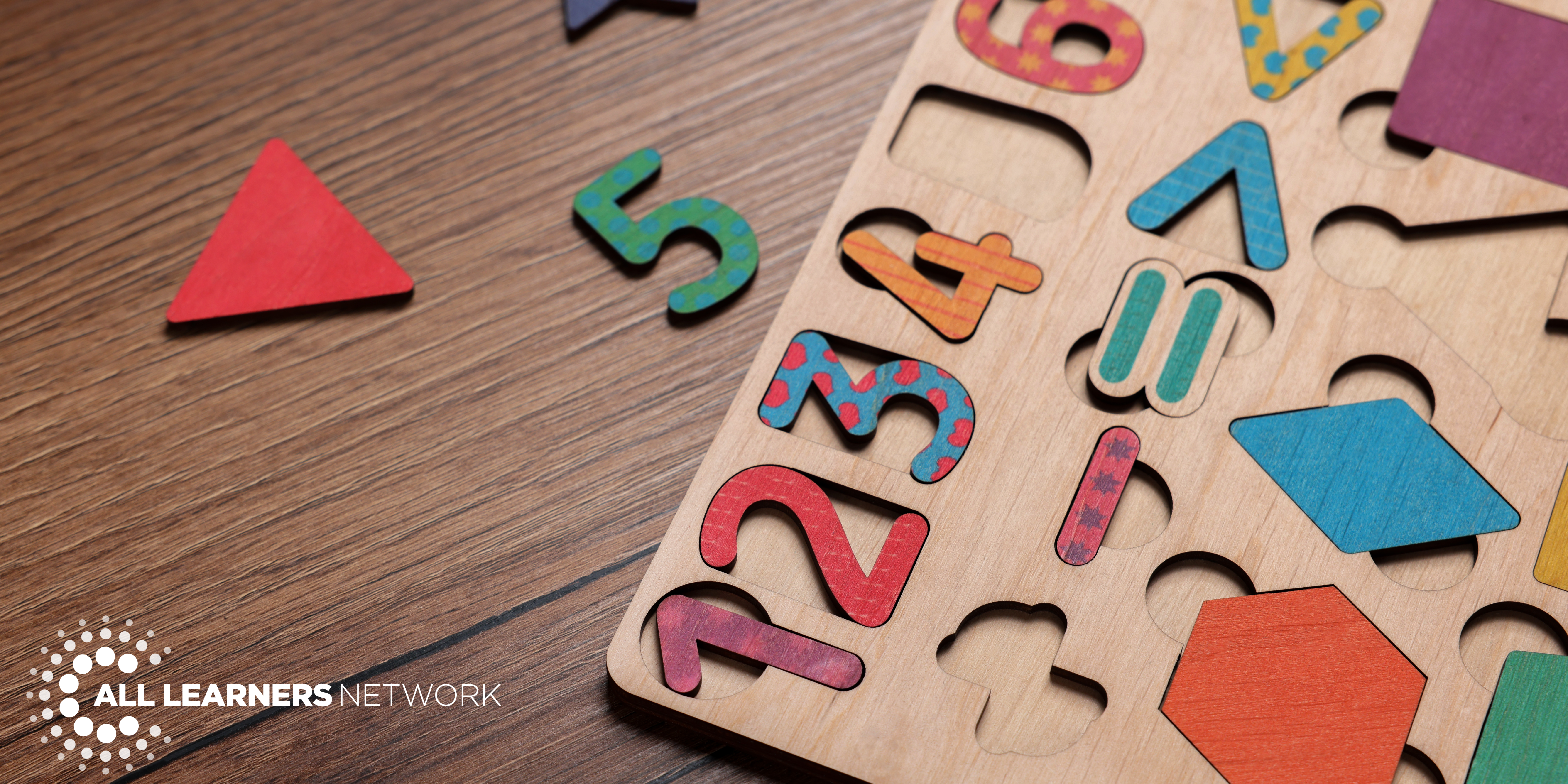
Playing with Numbers: Early & Joyful Math Interactions
We know that when young children have positive, early experiences engaging with math before kindergarten, it has a positive impact on their mathematical understanding later in school. “Early competence with number has proven to be a predictor of future success in school mathematics into the high school years” (Denton & West, 2002; Duncan et al., 2007; National Mathematics Advisory Panel, 2008). It matters what experiences and opportunities we create for young children to develop joyful moments when investigating mathematical concepts. The evidence is there - it makes a difference. And- many caregivers and even early educators might not know where to begin in providing rich, joyful, and meaningful math moments for their learners.
In contrast, let’s think about joyful, early exposure to reading. There are many resources for parents and educators of young children to both start and support their literary journey. Free books are often provided at the pediatricians’ offices. There are read-alouds scheduled routinely at local libraries for very young children. Tracking sheets to help track 1,000 books read before kindergarten are made available to families and caregivers. Every day there are new ideas on blogs, social media, and reputable educational or parenting publications. These are just a few examples of how the importance of reading is promoted early in a child’s life. We don’t begrudge these opportunities, we celebrate them. And even while we celebrate the built-in understanding of literacy’s importance, we also realize that there hasn’t been the same support for building mathematical understandings. And there certainly is a need.
What is so fascinating is that young children already engage with mathematics naturally during play. How many of you have heard statements similar to these from young children: “I have more toys than you.” “I’m taller than you.” “I’m 4, you’re only 3.” “I can jump farther than you.” These are all examples of young children mathematizing their world authentically. It was realizations like this that led to us wanting to capitalize on this engagement in a very intentional way: through gameplay.
Several years ago, All Learners Network (ALN) partnered with early childhood educators to create a packet of guidance, games, game boards, and cards all to promote early introduction to math games. The name of this packet is Games Before Kindergarten. The games and activities included in the Games Before Kindergarten have been carefully curated to highlight important mathematical concepts, which are foundational to all higher-level math. The games are engaging and lead to conversations about strategies for winning and losing, which places the math front and center. An added bonus is that gameplay promotes interaction with others (adults and other children) to build social skills and language development as well.
As grownups who learned to count long ago, it’s easy to take this skill for granted. Imagine you are trying to figure out how many bread bag clips are in this image. You must keep track of what has been counted and what still needs to be counted. To arrive at an accurate count, you must say only one number for each clip and you need to know that the last number you say represents the total amount. You will be careful to say the numbers in order. This takes an incredible amount of fine motor and organizational skills as well as knowledge of our number system.
The ability to understand number values and sequences to 10 is an essential way grownups can help prepare children for kindergarten. This is complex work and the good news is that there are opportunities to work on this as you go about your day without having to pre-plan mathematical experiences. The purpose of this kit is to highlight the math as you play.
Children are exposed to rich experiences that incorporate numbers every day and the trick is to notice these math moments. The opportunities to point out the math that we live with are endless and they provide opportunities to bond through having conversations, reading stories, and playing games together.
References:
Denton, K., Flanagan, K. D., & West, J. (2002). Children's reading and mathematics achievement in kindergarten and first grade. National Center for Education Statistics, Office of Educational Research and Improvement, US Department of Education.
Duncan, G. J., Dowsett, C. J., Claessens, A., Magnuson, K., Huston, A. C., Klebanov, P., ... & Japel, C. (2008). " School readiness and later achievement": Correction to Duncan et al.(2007).
Department of Education Washington DC. (2008). Foundations for success the final report of the national mathematics advisory panel. Distributed by ERIC Clearinghouse. February 27 2024
Click here for the printable version.
What Now?
- Download the directions for “Flip the Cup” and play it today!
- Purchase our $10 Games Before Kindergarten kit here. If you are an ALO Unlimited member, you can access it through your account, in the Math Menu Library.
- Bring All Learners Network (ALN) into your school or district for embedded professional development. We even work with schools to plan family math nights that center on game playing. Book a meeting with our team to plan a family math night for your school!

All Learners Network is committed to a new type of math instruction. We focus on supporting pedagogy so that all students can access quality math instruction. We do this through our online platform, free resources, events, and embedded professional development. Learn more about how we work with schools and districts here.




